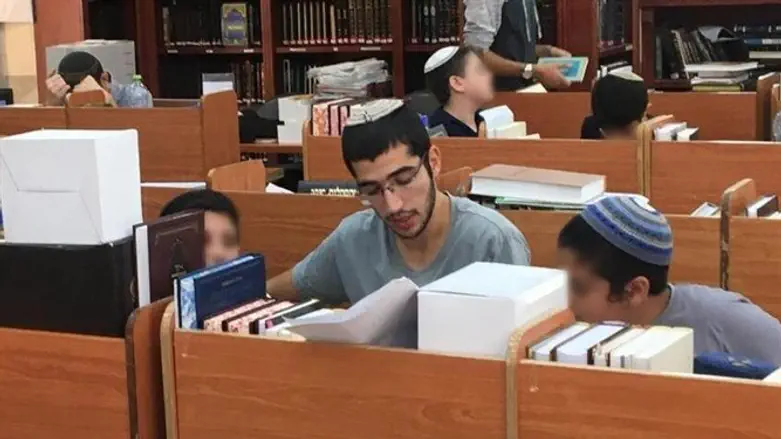
The Israeli city of Sderot in the western Negev, located just one kilometer from Gaza, is constantly under the threat of terror rocket attacks.
Even though Sderot has come a long way over the years, there are many social welfare and domestic family issues within the community.
The constant tension has had a negative impact on the lives of the residents in general, and in particular, the town’s youth and teens. No population needs more attention, support, and care than Sderot’s adolescents.
These young people are in search of role models who they can look up to and who can serve as an address for them to express their fears and insecurities.
In order to provide structured support, encouragement, and a sense of optimism for Sderot’s teenagers, the Max and Ruth Schwartz Hesder Yeshiva began a “Big Brother” program for local middle school students.
Every week, over 100 students in grades 7-8 from the local Yeshivat Amit Sderot Middle School (which also serves as a high school for grades 9-12) meet with their “big brothers” for around an hour inside the Hesder study hall. Big brothers are Hesder students who serve as volunteers and spend time with the young teens.
The pairs gather and learn Torah together within a Religious Zionist framework. Not only does learning take place, but relationships are forged and the meetings give the youth the opportunity to express their concerns and gain a sense of stability and self-worth, despite difficulties either at home, or perhaps tensions caused by the security reality.
Rabbi Yisrael Ohayon, the Rosh Yeshiva (dean) of Yeshivat Amit Sderot, who himself is a graduate of the Sderot Hesder Yeshiva, said that his students gain threefold from the program.
“Firstly, the program allows them to learn Torah in the afternoons with their big brothers,” he said. “Secondly, our students have the opportunity to explore the greater Torah world. They get to spend time in a proper beit midrash (study hall - ed.), see the books on the shelves, and experience how a hesder yeshiva works.”
Ohayon added that he feels the opportunity will help his students when the time comes for them to carry out their IDF service and they must decide whether they want to serve in the army within the Hesder framework or not.
“Thirdly, and most importantly,” he said, “the Big Brother program allows our students to develop a personal connection to the Hesder students. The Hesder guys are young people, not much older than them, who they can turn to as mentors and who can have a strong influence over them and encourage them to pursue their dreams.”
Ohayon said that he personally gives credit to the Hesder Yeshiva and to its Rosh Yeshiva, Rabbi David Fendel, for shaping his own personal Torah lifestyle.
The Hesder Yeshiva is currently planning to expand the program to include more students, and also to increase its activities with special events, after-school trips, Shabbat (Sabbath) programming, and more, for the benefit of Sderot’s youth.
Rabbi Ari Katz, the Hesder Yeshiva’s Director of PR, said that, “Given the very complex situation in Sderot, the children basically suffer from post-trauma even when it’s quiet.”
He added: “The Big Brother program is a great way to help these teens in coping. I have seen this in action and I personally sometimes want to cry, seeing how beautiful this is and knowing how helpful it is. We strongly believe this program helps create a brighter future for the youth of this town.”